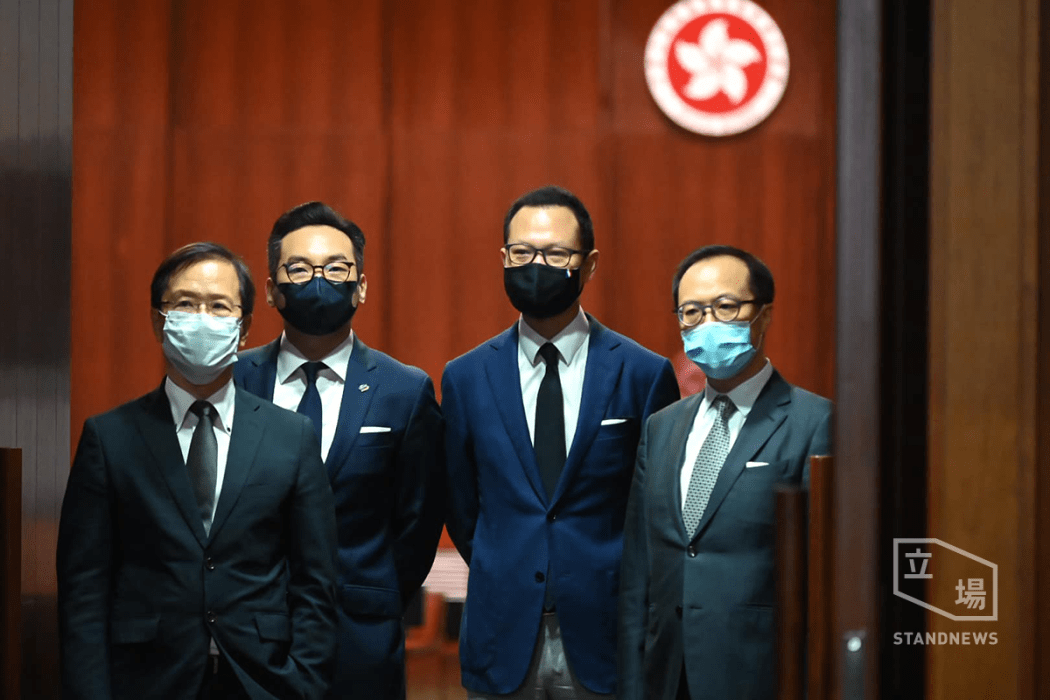Hong Kong leader Carrie Lam has said she has no plan for Hong Kong democratic reform in the remainder of her term, following her latest policy address. The address, which she delivered at the legislature on Wednesday, received the lowest public ratings yet, according to a survey.
During a TV forum on Wednesday evening, the chief executive told reporters that she had “fantasised” about electoral reform in 2017 when she first assumed the role, “but the bubble burst quickly.” She added that forcefully launching reform will only divide society further and make governance even more difficult.

“When national security is not safeguarded, we cannot proceed with democratic development,” she said. “In fact, elements of democracy have been increasing since the Handover in 1997. Therefore, I can’t agree that being unable to push for the popular election of the chief executive amounts to a breach of the Basic Law.”
Article 45 of the Basic Law states that the ultimate aim is for the city’s leader to be elected by universal suffrage. However, it should be achieved in a gradual and orderly manner in the light of actual situation in the city.
In 2012, Beijing’s Standing Committee of the National People’s Congress (NPCSC) interpreted the Basic Law and decided that reform should go through five steps, which Lam said she had insufficient time to complete before end of her term in 2022.
“There won’t be time nor objective conditions [to allow reform procedures to begin.] I wish to make clear to citizens that my priority will be to control the pandemic, revive the economy and work on improving the livelihoods of people.”
According to the Hong Kong Public Opinion Research Institute instance poll, the policy address received a preliminary public opinion rating of 27.2 out of 100, the lowest rating since 1997. The poll surveyed over 500 citizens online and by phone who had listened to the address.
The chief executive said she was unable to listen to public views during the past year’s political turmoil owing to “rioters,” but added that she was willing to approach more Hongkongers when the situation was stable.
National security
Lam previously praised the enactment of the Beijing-imposed national security law as restoring stability in Hong Kong. She told reporters that she was worried that the city had become a security loophole for the entire country, but felt at ease when the NPCSC announced its plans for the law.

She added that the government has striven to keep all offences relating to national security under Hong Kong’s jurisdiction in order to avoid stirring up public anxiety.
Article 55 of the law states that China may exercise jurisdiction in cases that involve foreign countries and complex, serious situations which cannot be handled locally.
Lam claimed that foreign interference was obvious during the 2019 anti-extradition law protests and that Western countries’ sanctions prompted Beijing to take necessary measures. Her administration, however, has yet to provide evidence of any direct involvement of foreign states in the demonstrations.
Despite street protests scaling down amid the Covid-19 pandemic, Lam said that the government will be cautious about believing societal problems had disappeared following the security law. However, she said that public discontent will not affect governance: “We should understand the source of their anxiety. If it was due to a lack of understanding of One Country, Two Systems, and thinking that Hong Kong can declare independence or determine its own future, we should not take any care of those concerns.”

She said that enhancing public education in the Basic Law and constitution will be a solution to handle public anxiety.
No opposition at legislature
The leader also described her policy address reading on Wednesday as a breakthrough in light of the strained relationship the executive body had with the legislature. The chamber now has no effective opposition, after democrats quit two weeks ago in light of the government’s lawmaker disqualifications enabled by Beijing.
“I read the lengthy policy address without any interruption and have a lot of feelings about it. Theoretically, as the chief executive walks into the Legislative Council, I should be treated and respected in such a way. I am not only the head of the executive bodies, but also head of the entire special administrative region,” she said at the TV forum.
She said some democrats’ interruptions during last year’s reading were in breach of their constitutional duty to listen to the policy address, and hence they failed to fulfil the Basic Law requirements of lawmakers.

In another radio programme on Thursday morning, she said the current lack of diverse voices at the legislature was not her decision. She also cited lawmakers’ filibustering and vows to indiscriminately veto all government bills as being no basis for cooperation with the opposition.
At a legislative Q&A on after the phone-in, Lam committed to answering lawmakers’ questions for 30 minutes each month at the the legislature.
Support HKFP | Policies & Ethics | Error/typo? | Contact Us | Newsletter | Transparency & Annual Report | Apps
Help safeguard press freedom & keep HKFP free for all readers by supporting our team

























